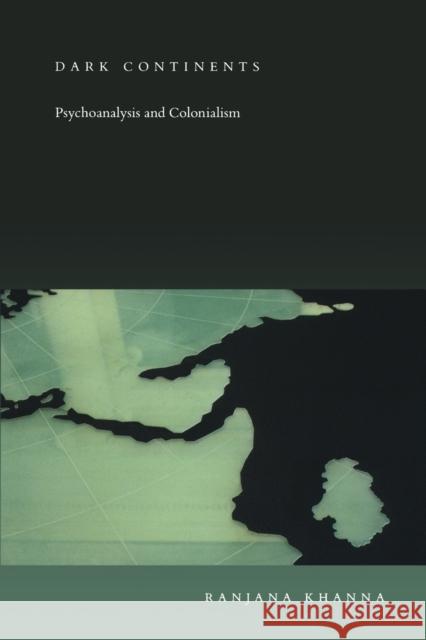Dark Continents: Psychoanalysis and Colonialism » książka
Dark Continents: Psychoanalysis and Colonialism
ISBN-13: 9780822330677 / Angielski / Miękka / 2003 / 330 str.
Dark Continents: Psychoanalysis and Colonialism
ISBN-13: 9780822330677 / Angielski / Miękka / 2003 / 330 str.
(netto: 130,56 VAT: 5%)
Najniższa cena z 30 dni: 113,98
ok. 30 dni roboczych.
Darmowa dostawa!
Sigmund Freud infamously referred to women's sexuality as a "dark continent" for psychoanalysis, drawing on colonial explorer Henry Morton Stanley's use of the same phrase to refer to Africa. While the problematic universalism of psychoanalysis led theorists to reject its relevance for postcolonial critique, Ranjana Khanna boldly shows how
bringing psychoanalysis, colonialism, and women together can become the starting point of a postcolonial feminist theory. Psychoanalysis brings to light, Khanna argues, how nation-statehood for the former colonies of Europe institutes the violence of European imperialist history. Far from rejecting psychoanalysis, "Dark Continents" reveals its importance as a reading practice that makes visible the psychical strife of colonial and
postcolonial modernity. Assessing the merits of various models of nationalism, psychoanalysis, and colonialism, it refashions colonial melancholy as a transnational feminist ethics.
Khanna traces the colonial backgrounds of psychoanalysis from its beginnings in the late nineteenth century up to the present. Illuminating Freud's debt to the languages of archaeology and anthropology throughout his career, Khanna describes how Freud altered his theories of the ego as his own political status shifted from Habsburg loyalist to Nazi victim. "Dark Continents "explores how psychoanalytic theory was taken up in Europe and its colonies in the period of decolonization following World War II, focusing on its use by a range of writers including Jean-Paul Sartre, Simone de Beauvoir, Octave Mannoni, Aime and Suzanne Cesaire, Rene Menil, Frantz Fanon, Albert Memmi, Wulf Sachs, and Ellen Hellman. Given the multiple gendered and colonial contexts of many of these writings, Khanna argues for the necessity of a postcolonial, feminist critique of
decolonization and postcoloniality.











